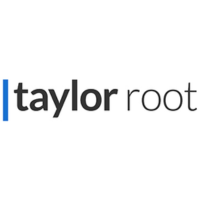
Group head of legal | Air Arabia




Osama Romeih
Group head of legal | Air Arabia
Team size: 12
Could you share an example of a time when you came up with an innovation that improved how your legal team works and did not come at a large expense?
The use of legal technology ensures seamless integration with existing in-house software used by other departments or required for the legal team to follow up on legal tasks within an agreed SLA, such as workflow system, email, contract life management software, and legal research. Platforms. By implementing cloud-based platforms to facilitate remote work, document storage, and collaboration between legal teams, the legal team will benefit from improved organisation, better secure access to information, enhanced collaboration, and increased efficiency and flexibility in their daily lives. All work without incurring significant expenses or requiring new hardware or software licenses. This integration would minimise unnecessary workflow disruptions and maximise productivity as a data-driven approach would help identify knowledge gaps, common topics of interest, and potentially allow the team to make better informed legal decisions.
How do you balance your responsibilities as a GC with your involvement in dispute resolution and M&A matters?
Balancing the responsibilities of being a group head of legal, while also actively participating in the legal matters of a multinational group operating across many countries with diverse business activities, can be a challenge. With effective time management and delegation, it is possible to attain a balanced approach through strategies like building a capable team that can handle various legal matters, prioritising essential tasks, and clearly communicating expectations for efficient task handling. Furthermore, implementing streamlined processes and standardised templates for routine legal matters enhances efficiency, reduces time spent on repetitive tasks, and allows me to concentrate on more complex matters.
Can you foresee any key developments to the way general counsel work over the next five years?
Over the next five years, I foresee several key developments that will reshape the role of general counsel (GC). While the legal industry is constantly evolving, there are some particular trends impacting GCs that I would like to highlight.
The first would be data privacy and cybersecurity, as data breaches and privacy concerns increase, GCs must prioritise data protection and cybersecurity. GCs must ensure data privacy, establish breach response, and collaborate with IT to safeguard sensitive information.
Furthermore, I foresee an increasing focus of Environmental, Social, and Governance (ESG) issues. Stakeholders will increasingly push for more priority on ESG initiatives, and GCs will be crucial in advising on sustainability, governance, and social responsibility. They will need to navigate complex regulations, promote ethical practices, and manage reputation risks.
To build on this, I foresee an increased emphasis on risk management. As the regulatory landscape shifts and the business environments continually evolves, GCs will be called upon to proactively manage legal risks. They must develop robust compliance programs, conduct regular risk assessments, and stay abreast of regulatory changes so they can guide their organisation effectively.
In conclusion, GCs must evolve, adapt to new challenges, leverage technology, and provide strategic counsel in complex regulatory environments. In the coming years, continuous learning, agility, and a proactive approach are essential.
What emerging technologies do you see as having the most significant impact on the legal profession in the near future, and how do you stay updated on these developments?
The legal profession is about to experience a transformation with the emergence of various technologies. To adapt, GCs must harness technology-driven solutions for more efficient and effective work, such as legal tech tools for document management, contract analysis, e-discovery, and AI-powered platforms for improved legal research and data analytics. Automation and digitisation will streamline processes, especially those featuring advanced capabilities such as Artificial Intelligence (AI), Machine Learning, and Natural Language Processing (NLP), Blockchain Technology, and Robotic Process Automation (RPA).
AI, Machine Learning, and NLP will assist in contract analysis, legal research, and due diligence. Data analytics tools will extract insights for data-driven decisions, and predictive analytics can aid in forecasting legal outcomes thus allowing lawyers to tailor their strategies. Blockchain offers the potential to improve security, transparency, and efficiency, benefiting smart contracts, IP protection, and digital identity verification. It can streamline document management, simplify transactions, and reduce fraud risks. Finally, RPA can assist by automating repetitive tasks like document generation, data entry, and contract management. This will increase efficiency, reduce errors, and allow lawyers to focus on more complex, strategic tasks.
Legal professionals should adapt and leverage these emerging technologies to their advantage by staying proactive and investing time in understanding them.
Group head of legal | Air Arabia
Group legal counsel | Air Arabia
The go-to advisor for the CEOs and boards of the Air Arabia Group companies on laws, regulations and public policy, ethics and risk, Osama Romeih plays a central role in...